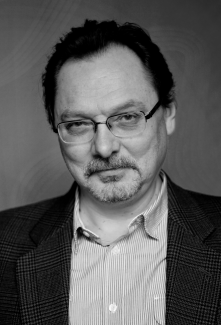The Caucasus: a Hotbed of Terrorism in Metamorphosis

Since summer 2009, instability in the eastern part of the North Caucasus has escalated, a security threat against which the Russian leadership cannot find a strategy. Despite a maximum-intensity counterinsurgency campaign, the rebels have been able to expand their support base, staging terrorist attacks in Moscow.
The Domodedovo airport of 24 January 2011 is just the latest example. President Medvedev is trying to combine sustained repression with economic development, but his "soft power" approach has little credibility. Increased transfers from the federal budget have created a system of administrative corruption, which now constitutes a greater obstacle to private investment than the high risk of violence. In fact, rampant corruption has become the major driver for instability because public anger cannot find political expression, feeding the growth of underground Islamic networks that often resort to violence. The inefficacy of Medvedev's strategy increases the probability that the 2011-2012 election cycle in Russia could be suddenly and profoundly influenced by terrorism originating in the North Caucasus. Yet, another attempt to mobilize the country through a decisive, centralizing leader might propel Russia towards a spontaneous Soviet-style implosion.
Download the full analysis
This page contains only a summary of our work. If you would like to have access to all the information from our research on the subject, you can download the full version in PDF format.
The Caucasus: a Hotbed of Terrorism in Metamorphosis
Related centers and programs
Discover our other research centers and programsFind out more
Discover all our analysesThe Caspian Sea as an Emerging Energy Hub : Potentials and Limitations
This report analyzes the prospects of the Caspian Sea region — and its key actors except for Russia and Iran — becoming an important energy hub serving the needs of the European Union (EU).
The European Union's Strategic Test in Georgia
The political crisis brewing in Georgia is of an existential nature for the country. What is at stake is Georgia's future as a democratic and sovereign European nation (EU).
Commanders of Putin's Long War: Purged, Reshuffled and Disgruntled
The trend of reshuffling the Russian top military command in the course of a fast-evolving and far from successful war has progressed unevenly both across the Armed Forces’ structures and in time. The rationale for and timing of the abrupt cadre decisions made by Commander-in-Chief Putin often defy logical explanation, and the rare official clarifications are no more informative than the usual information blackout.
Russian Military Manpower After Two and a Half Years of War in Ukraine
In addition to a military victory in Ukraine, the Russian leadership is planning to build up sizable troop formations for a possible conflict with NATO in the Baltic region and the Kola Peninsula. In particular, current plans aim for the military manpower to grow by about 350,000, reaching a total of 1.5 million soldiers and commanders. In the context of the current conflict in Ukraine, this cannot be accomplished without a new wave of mass mobilization.











